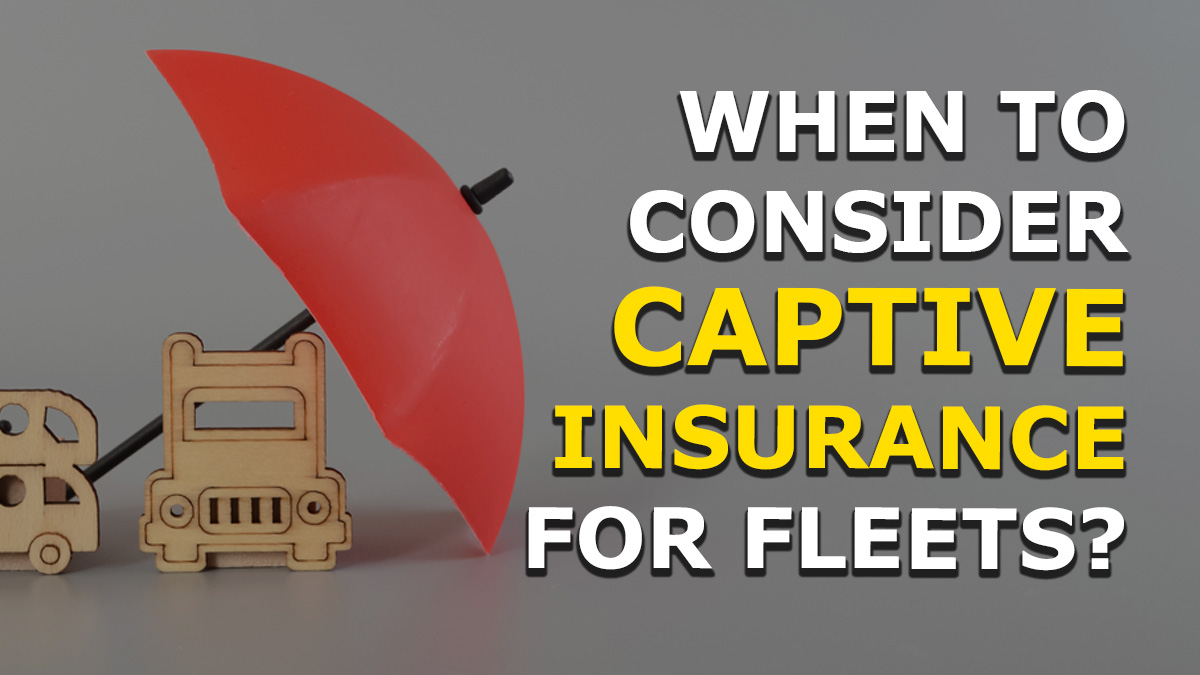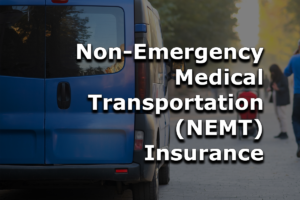Did you know that the top 50% of carriers are in a captive insurance group or self-insured?
That means if you are shopping for insurance premiums, you are grouped with the least safe fleets in your market, making rates more expensive.
A captive is a great choice for carriers that are seeing rising insurance costs despite having good safety records. But how does it work and is it worth it?
Let’s answer the most frequently asked questions about captive insurance for small and medium sizes fleets.
What is Captive Insurance?
Captive insurance is an insurance company owned and controlled by its insureds, providing coverage where each participant shares the risk.
When it comes to the captive insurance model, there are two common types of models: pure and group captives.
Pure, or ‘single-parent’ captives, are common for large companies with big fleets and revenues, where they can afford to cover the cost of any claim out of pocket.
Group captives are common for smaller and medium sized fleets (30+) that includes multiple companies who are shareholders of that captive. They are the ones that buy the insurance policies.
In this article, we will focus on group captives.
What are the benefits of Captive Insurance?
One of the fastest growing costs for trucking companies in recent years has been insurance. While lowering risk through safety, technology, and driver history and training is helpful, many fleets don’t want to incur more costs without seeing huge returns in savings. But this takes time.
Captive insurance helps create a group dynamic where everyone is encouraging and investing in all of these programs so they can see big savings much more quickly.
But that’s not all. Captive insurance benefits include:
- More favorable insurance terms
- Greater control over their insured products
- Better financial outcomes compared to the traditional insurance
- Claims handling control
- Ability to retain profits from good performance
- Stability in pricing and availability
- Improved cash flow
- See lower driver (and non-driver) turnover
How does Captive Insurance improve my fleet safety?
With a group dynamic looking to stay safe as possible and reduce claims as much as possible, there will be encouragement and advice on how to roll out safety programs that work at the better performing fleets.
The Vice President of Safety will become a key part of the executive team (where they belong). In typical group captives, you will meet regularly (three to four times per year) and compare and contrast your accident/incident results with your fellow owners.
The whole purpose is to lower the individual risk profiles of each owner, and overall as a group.
If done right, participation in a captive can have a compounding positive effect on culture and profits.
What are the risks of Captive Insurance?
“They have greater control because they invest more of their resources into the program, but there is more risk,” he explains. If the captive loses money, all the insured lose money. But they can also be advantageous, especially for fleets with good safety records.
“I always tell my clients, When you buy a normal insurance policy, it’s kind of just dating somebody for a year. You could break up, and a buyer shifts to a different insurance company, right? Pretty much nothing will happen,” Caceres says. “When you’re going with captive, it’s like you’re getting married. And when you get married, there’s a lot that goes on. If you want to get divorced, you can, but it’s gonna take a long time.
Is my fleet big enough for Captive Insurance?
On average, decently safe carriers with around 30+ units may find it economically advantageous to join a group captive, whereas smaller companies may not have enough premium volume to make it worth it (at least $250,000 in premiums).
This means most carriers need to be in business 5+ years to prove their safety history and not have loss ratios over 35%.
When looking to join a captive, expect some paperwork to be collected and looked over before joining.
Common information required for proposal to join include:
- Motor Vehicle Reports on all drivers ran within 30 days of submission.
- Vehicle Maintenance file on each unit
- Cab Report
- Loss history template (5-10 years)
- IFTA (5-10 years)
- Financial Statements P&L, Balance Sheet (5 years) demonstrating financial viability
- A clean driver record for younger drivers with no moving violations or at-fault accidents
- A safe driver record for older drivers with no more than 2 violations within the last 3 years and one at-fault accident
- Documented Road Tests for all drivers
- No more than 10% of all drivers used with less than 2 years of CDL experience
- and more…
How long should I be in a Captive Insurance program?
Many carriers in captives put more money upfront for insurance coverage and want fleets to show progress in improving safety.
This means it is recommended to stay in a captive for at least 3 years to see the wider benefits we mentioned earlier.
How do I find the right group for Captive Insurance?
Being grouped with poor-performing companies is the most common complaint from carriers who have a bad experience with captives.
That is why doing your research into the group is important, learn what types of companies are in the group, how claims and safety are handled, and more.
Captives is like getting married versus using dating apps each year with normal insurance companies. If you do your research well and see that research the group does into your company is taken seriously, then you can trust a better experience.
How do I get started with CNS’ Captive Insurance?
Interested in exploring captive insurance options for your business? Contact us today to schedule a consultation with one of our captive insurance specialists.
We will assess your unique risk profile, discuss your insurance goals, and outline a customized strategy to help you maximize the benefits of captive insurance.
Call CNS at 800.724.5523 or email info@cnsinsures.com.






